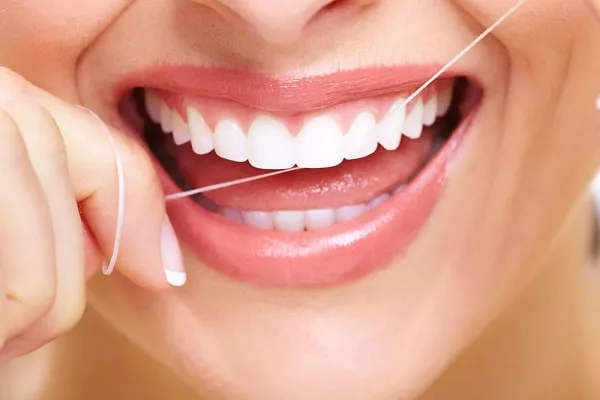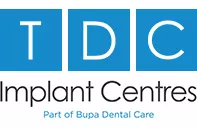We aim to provide you with information that helps you make the best treatment decisions. In this section, we provide useful articles to answer the questions we are often asked, and tell you more about the award-winning TDC team.
To floss or not to floss?

‘Medical benefits of dental floss unproven’ proclaimed recent newspaper headlines.
On reading that, the 79% of us Brits who’ve been conscientious flossers may have been forgiven for feeling a little aggrieved that we’d been wasting time that could have been better spent hitting our alarm’s snooze button.
But before you forgo the floss, consider what Dr Michael Zybutz, Lead Surgeon at Total Dentalcare Implant Centres, has to say:
‘I’ve been a dentist for over 25 years and when I do a plaque scan I can immediately tell if someone flosses their teeth or not, so I know for a fact that flossing is an effective way to clean your teeth.’
Seeing is believing
So what about the claims saying flossing hasn’t been studied properly?
‘No randomised, double-blind, placebo-controlled studies have been undertaken to prove that using a parachute prevents death if you jump out of a plane, and yet parachutes are used routinely!’ says Dr Zybutz.
‘The same goes for any number of medical procedures and preventative techniques such as dental flossing ‒ a very high level of proof is required to prove definitively that they work, but those kind of studies are very expensive and difficult to conduct, which is why they haven’t been done.’
‘Yes, more research is needed, but if you speak to dentists they’ll all advise you that caring for your teeth by keeping them clean (and not smoking) is the best way to prevent gum disease, and flossing is definitely effective at doing this, especially between the teeth.’
The benefits of flossing
The limited research that has been conducted into flossing, however, does show that it has proven benefits.
In one review of six trials, for example, it was found that when children had their teeth professionally flossed on schooldays for almost two years, there was a 40% reduction in the risk of cavities. And a Cochrane review revealed that regular tooth brushers and flossers had less gum bleeding than people who only brushed.
‘Bleeding gums can be a sign of gum disease, so anything that prevents this means you’re more likely to keep your teeth healthy,’ says Dr Zybutz.
Why flossing is vital
Flossing removes plaque, a collection of germs that forms a biofilm on teeth. It re-forms every 24 hours so we need to brush and floss every day to remove it.
‘Studies show that plaque is the primary cause of gum disease,’ warns Dr Zybutz.
‘If you leave plaque on your teeth for just 10 days, 100% of people will get gingivitis (red, swollen and bleeding gums), and gingivitis can, in most people, lead to periodontitis (inflammation of the supporting tissues of the teeth) which, over five to 20 years, leads to bone loss, tooth loosening and eventually teeth loss.’
‘Gingivitis is reversible and can be prevented by flossing, but periodontitis isn’t. What’s so worrying about the latter is that it’s not painful and takes a long time to develop, so many patients won’t even know they have it.’
Dr Wayne Aldredge, President of the American Academy of Periodontology, who recommends flossing to his patients even though there’s no rigorous evidence that it prevents periodontitis, agrees:
‘[Periodontitis is] a very insidious, slow, bone-melting disease,’ he says. Those who quit flossing are ‘rolling the dice” ‒ you don’t know if you’ll develop periodontal disease, and you can find out too late.’
Interdental brushes are often touted as an alternative to flossing but they have a downside cautions Dr Zybutz:
‘They tend to flatten the little “peaks” of gum between the teeth and create tiny black triangles that look unsightly, especially between your front teeth.’
In addition, not everyone has space to fit an interdental brush between all of their teeth ‒ sometimes the gaps are just too small.
Not all flosses are equal
Now that we’ve established the importance of flossing, what type of floss works best?
‘I recommend waxed or unwaxed floss,’ says Dr Zybutz. ‘I’d be wary of using Teflon floss which, although slippery and hence easier to use, doesn’t clean as well. If you’re having trouble flossing, or floss is catching on your teeth, book an appointment with your dentist so they can take a look at your fillings.’
‘Flossing technique is also very important, so make sure you see a dental hygienist who will show you how to floss properly and help you avoid floss cuts that can cause damage to your gums.’
If you’d like more advice on how to avoid or treat gum disease, or if you want to find out more about TDC Implant Centre’s Smile in a Day dental implant procedure, get in touch for your free consultation* here, or call 020 3553 6415.
